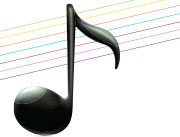Concert of Memories


GOLDEN OLDIES Richard gradually opened up and told Tziona that he hadn’t heard music in five years. He spoke about his life his dreams his failures and his connection to music. She watched a man buried in isolation crawl out of his shell with the help of music he loved
I n a nursing home in Tzfas a man who’d been declared brain-dead lay on a bed for years completely unresponsive. One day he received a visitor sent by the chaplain of the home a musician named Tziona Achishena. Based on the man’s age and his hometown Tziona guessed what kind of music he would have liked and started to play some tunes. By the fourth song the man — whose brain had shown zero activity for years — opened his eyes made eye contact with Tziona and burst into tears.
This glimpse into the man’s soul was brief — he remained unresponsive. But the staff who’d previously related to the man robotically now saw him as a person who was alive inside. The hint of consciousness brought about by music entirely changed the quality of care he received.
Stories like this are surprisingly common. “When you turn music on people come to life ” says Tziona. The mere act of listening to a familiar tune can have a significant impact on health according to a slew of studies. In the elderly population music has been shown to improve physical cognitive and emotional capacities.
Tapping into this wealth of research is a nonprofit organization called Music & Memory. As part of their international program nursing home staff and other care professionals — such as Tziona — are trained to create personalized playlists using iPods to enable elderly patients suffering from dementia and other cognitive issues to reconnect with the world through music.
Medicine in a Melody
The positive effects of music on the elderly are astounding according to Dr. Concetta Tomaino executive director of the Institute for Music and Neurologic Function. “You can see the value of [the Music & Memory] program as being not just a casual activity but almost a necessity for daily care because of the promise and potential that it has for enhancing quality of life.”
The healing impact of music is far reaching across the spectrum of diseases and conditions. For instance music is purported to alter the different components of the progression of Alzheimer’s disease through sensory cognitive emotional behavioral and social impacts. In one ten-week study involving patients with Alzheimer’s disease music therapy was shown to increase wellbeing and pleasure and reduce anxiety and depression levels.

“There’s so much distance and loneliness in our world. And nowhere is loneliness more acutely experienced than by elderly people who are often lost in their own minds”
Familiar music has been scientifically proven to improve cognitive and verbal abilities in patients especially those suffering from dementia. One study involving people with dementia found that participating in a music-listening program improved memory mood and orientation. In another study patients showed signs of alleviated depression.
Even for people with advanced dementia (who make up 40 percent of sufferers) emotion is still very much intact; because of this patients will usually react to music regardless of how degraded their cognition.
“It’s our favorite music that’s connected with our emotional system” explains Dan Cohen the founding executive director of Music & Memory which operates in around 3 000 care facilities across eight countries. (Excerpted from Family First Issue 541)
Oops! We could not locate your form.












